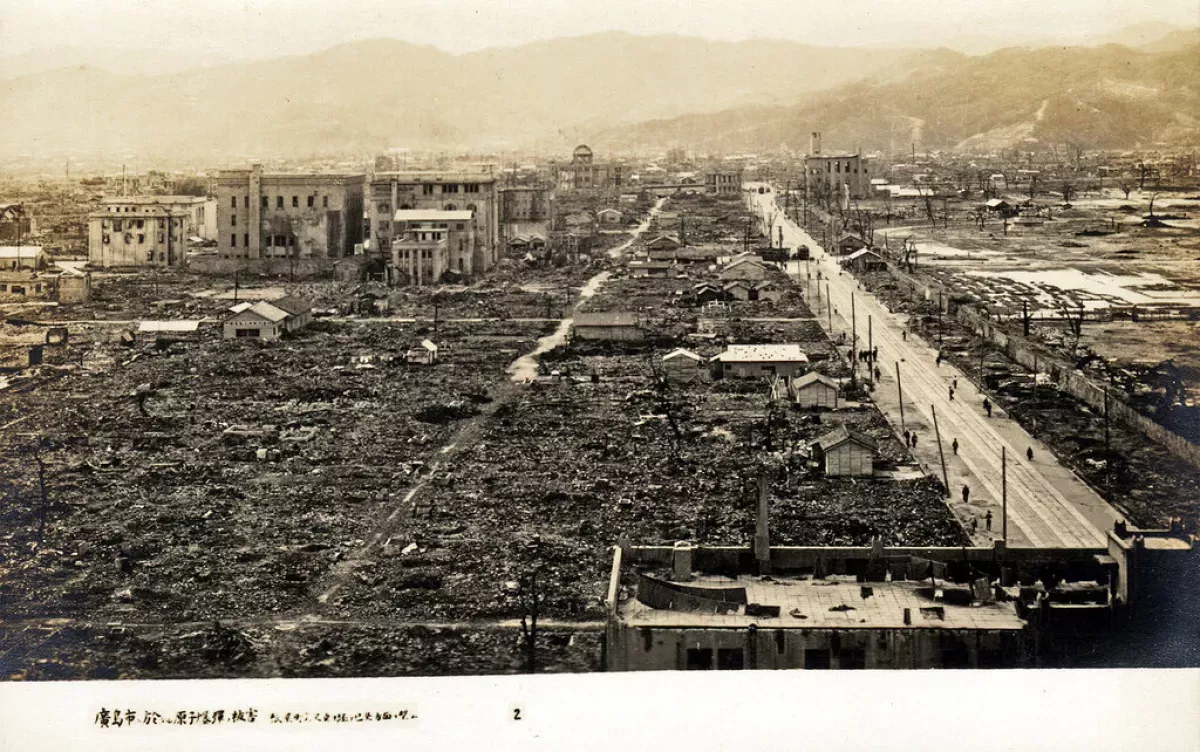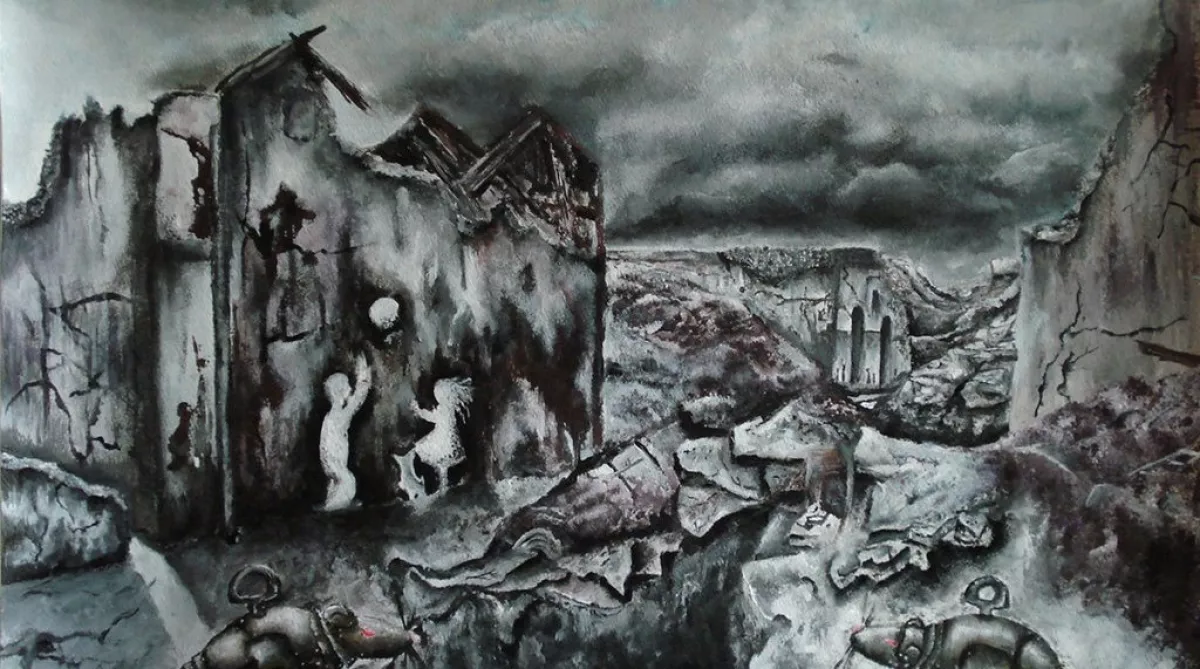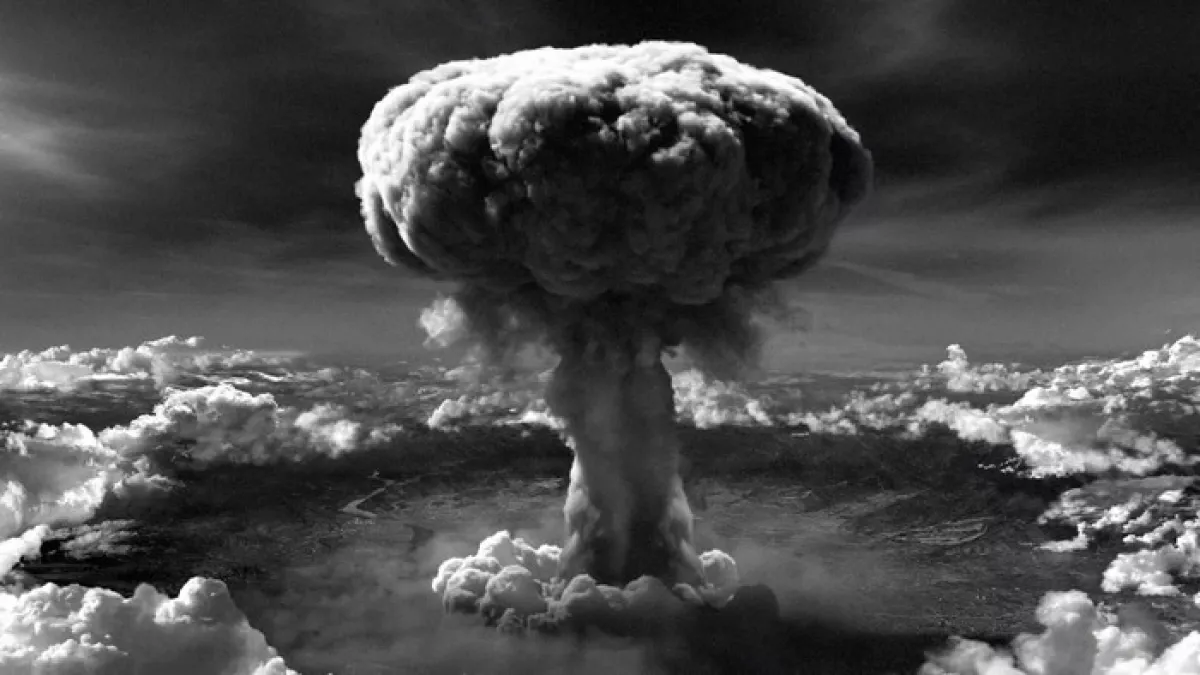Hiroshima does not forgive forgetfulness The lingering threat of nuclear war
Yesterday, on August 6, the world once again observed Hiroshima Day, also known as the International Day for the Total Elimination of Nuclear Weapons. This year marks 80 years since the American B-29 aircraft dropped the uranium bomb "Little Boy" on the Japanese city, destroying 70% of Hiroshima. The explosion obliterated everything within a 1.5-kilometre radius, and the total number of deaths resulting from the first-ever use of nuclear weapons is estimated to be between 130,000 and 226,000.

Yet, as we see today, certain politicians still threaten the world with the use of nuclear weapons without much remorse—despite the fact that it is now clear to all: there can be no winners in a nuclear war. Meanwhile, in the Middle East, civilians are being killed by the thousands, and in Ukraine, women and children are dying—all without the use of nuclear weapons. This only emphasises that should such weapons ever be used, the scale of the catastrophe would be incomparably greater.
But do the politicians making these threats truly understand the consequences this could lead to? Even in the mid-20th century, some literary masters offered chillingly clear portrayals of how such a scenario might unfold. In light of this, we decided to revisit a story that needs no special introduction—Ray Bradbury's There Will Come Soft Rains (1950).
This short yet still deeply moving story contains no dialogue, no monologues. But what could be said, after all—when the narrative is centred on a “smart” house that has suddenly been abandoned, presumably following a nuclear disaster? And it is precisely this detachment of the narrator-observer that strikes a chord. He describes only a few hours in the life of an empty house—a house that seems to breathe. But… does it really?
The house “speaks,” but not with human voices. Time is announced, a hot breakfast is prepared in the kitchen, cutlery is laid on the table, a cigar is lit, the rooms are cleaned, and the garden fountain splashes softly. But all of this is carried out by machines.

Where are the living inhabitants of the house? The reader involuntarily expects to see them at any moment—their joyful faces, their smiles. Here they seem to be... but only as silhouettes.
Silhouettes (shadows?) of those who, perhaps just a moment ago, were still alive, but who were swept away by the sudden wave of catastrophe. The family, living their measured life, is captured in the moment of their final actions.
The awareness of the tragedy is unsettling. Especially since we learn about all that happens through an utterly dispassionate narrator. Not even a narrator, but an observer utterly indifferent to everything taking place. He simply records what he sees—without the slightest sympathy or emotion. And suddenly it strikes like an electric shock: this narrator himself is also a robot. Yet, paradoxically, he unexpectedly instills hope: maybe life still flickers within this "smart" space? But even the family dog, miraculously surviving somehow, realises it is alone and soon becomes almost the same kind of silhouette.
The feeling is one of stunned disbelief—nothing else. Especially at the moment when a voice is heard from somewhere above, reading a poem in a detached manner, the lines striking like a slap:
Not one would mind, neither bird nor tree,
If mankind perished utterly;
And Spring herself, when she woke at dawn
Would scarcely know that we were gone.
After this, the house is engulfed in flames—and vanishes: “Deep freeze, armchair, film tapes, circuits, beds, and all like skeletons thrown in a cluttered mound deep under. Smoke and silence. A great quantity of smoke.” The observer falls silent.
Amazing Ray Bradbury. What else is there to say, except to exclaim: where did he get this understanding of what might await humanity? The year was 1950. Today it is 2025. An unimaginable technological revolution has transformed not just our lives, but the very shape of life itself. The pace. The direction. Yes, technology. Yes, artificial intelligence. Everything is entrusted to humans.

But in a single moment, all of this could be swept off the face of the Earth—any achievements, any “smart” systems.
Bradbury’s approach is far from accidental. Sixty years after writing the story, shortly before his death, the author said: “We must move into the universe. Mankind must save itself. We must escape the danger of war and politics. We must become astronauts and go out into the universe and discover the God in ourselves.”
In the author’s subjective opinion, these words are not merely a collection of letters. Rather, they speak to the importance of immersing ourselves in an atmosphere of peace, created for us by the Almighty. It is this that allows us to hear and feel that Divine spark the Creator breathed into us.
Perhaps Bradbury’s brief story is a kind of signal: against the backdrop of the technological boom sweeping the planet in giant strides, what we all need—towards ourselves and others—is quite simple: kindness, words of support, forgiveness, patience, understanding.
But is there any guarantee that this will become a universal reality?








